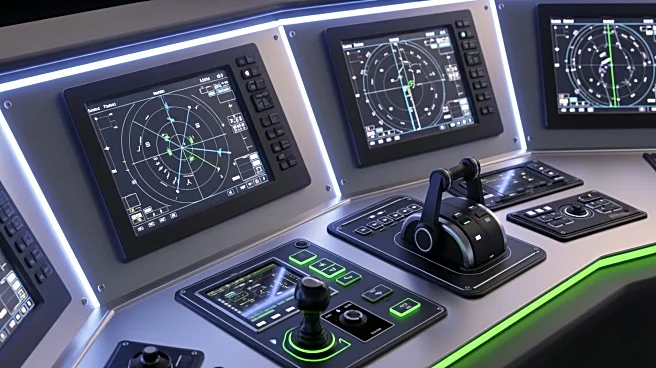What's Happening?
Austal Australia has received Approval in Principle (AiP) from DNV, a classification society, for its Autonomous and Remotely Operated Ships (AROS) Platform Controller. This system is designed to provide a standardized interface between a vessel's engineering
systems and its navigational autonomy system, ensuring safe and compliant operations in autonomous modes. The AROS Controller manages information transfer, checks system health, and verifies operational safety, making it a critical component for future autonomous vessels. Austal's development focuses on creating a modular interface that integrates with their Integrated Monitoring Alarm and Control System (IMACS), paving the way for autonomy-ready vessels.
Why It's Important?
The approval of Austal's AROS Controller represents a significant advancement in maritime technology, potentially transforming the future of ship operations. By enabling safer and more efficient autonomous navigation, this development could reduce human error and operational costs, benefiting the shipping industry. It also positions Austal as a leader in maritime innovation, potentially attracting new business opportunities and partnerships. The move towards autonomous vessels reflects broader industry trends towards automation and digitalization, impacting global shipping practices.
What's Next?
Austal will proceed with the development, verification, and validation processes to achieve full approval for the AROS Controller. This will involve rigorous testing and integration with compatible navigational systems, such as Greenroom Robotics' GAMA. Successful implementation could lead to widespread adoption of autonomous technology in maritime operations, influencing regulatory frameworks and industry standards. Stakeholders will be watching closely as Austal navigates these next steps.
Beyond the Headlines
The shift towards autonomous maritime technology raises questions about the future of maritime labor, as automation could impact job roles and skill requirements. Additionally, the integration of such systems may prompt discussions on cybersecurity and data protection, given the reliance on digital interfaces and communication networks. These considerations will be crucial as the industry adapts to technological advancements.

















